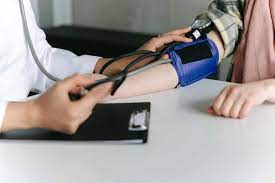
Embracing a Comprehensive Approach to Cardiac Rehabilitation: Insights from Dr.Hari Saini
Introduction:
Cardiac rehabilitation plays a pivotal role in optimizing recovery and improving outcomes for individuals recovering from cardiovascular events or procedures. Dr Hari Saini, a leading cardiologist, advocates for a comprehensive approach to cardiac rehabilitation that encompasses not only physical exercise but also education, counseling, and lifestyle modification to promote holistic recovery and long-term cardiovascular health.
The Importance of Cardiac Rehabilitation:
Cardiac rehabilitation is a multidisciplinary program designed to address the physical, psychological, and social needs of individuals with heart disease. It aims to optimize cardiovascular function, enhance exercise capacity, reduce cardiovascular risk factors, and improve quality of life. Dr. Saini emphasizes that participation in cardiac rehabilitation has been consistently associated with reduced mortality, hospital readmissions, and cardiovascular events, making it an essential component of post-cardiac care.
Structured Exercise Training:
Central to cardiac rehabilitation is structured exercise training tailored to individual patient needs, preferences, and clinical status. Under the supervision of trained professionals, patients engage in aerobic exercises, resistance training, and flexibility exercises aimed at improving cardiovascular fitness, muscle strength, and flexibility. Dr Hari Saini underscores the importance of gradual progression and individualized exercise prescriptions to ensure safety and maximize benefits.
Education and Counseling:
In addition to exercise training, cardiac rehabilitation programs provide education and counseling on various aspects of heart health, including risk factor modification, medication adherence, nutrition, stress management, and smoking cessation. Dr. Saini emphasizes the role of education in empowering patients to take an active role in managing their cardiovascular health and making informed lifestyle choices that support recovery and prevent future cardiovascular events.
Psychosocial Support:
Cardiac rehabilitation programs offer psychosocial support to address the emotional and psychological impact of heart disease on patients and their families. This may include individual counseling, group therapy, stress management techniques, and peer support networks. Dr. Saini recognizes the importance of addressing anxiety, depression, and adjustment issues that commonly accompany cardiovascular events, as they can significantly impact recovery and long-term prognosis.
Lifestyle Modification:
A key focus of cardiac rehabilitation is promoting lifestyle modification to reduce cardiovascular risk factors and optimize overall health. This may involve dietary counseling to encourage heart-healthy eating habits, weight management strategies, and assistance with smoking cessation. Dr. Saini emphasizes the importance of sustained behavior change in preventing disease progression and improving long-term outcomes.
Integration of Technology:
With the advancement of technology, cardiac rehabilitation programs are increasingly incorporating digital health tools, wearable devices, and telehealth platforms to enhance accessibility, monitoring, and engagement. Dr. Saini highlights the potential of remote monitoring, virtual coaching, and mobile apps to supplement traditional cardiac rehabilitation services and extend support beyond the confines of the clinic.
Conclusion:
A comprehensive approach to cardiac rehabilitation, as advocated by Dr Hari Saini , offers a holistic framework for optimizing recovery and promoting long-term cardiovascular health. By integrating structured exercise training, education, counseling, psychosocial support, lifestyle modification, and technology-enabled solutions, cardiac rehabilitation programs can empower patients to achieve meaningful improvements in their cardiovascular fitness, quality of life, and overall well-being. As we continue to evolve in our understanding and management of cardiovascular disease, embracing a comprehensive approach to cardiac rehabilitation remains essential in maximizing the potential for recovery and improving outcomes for individuals with heart disease.